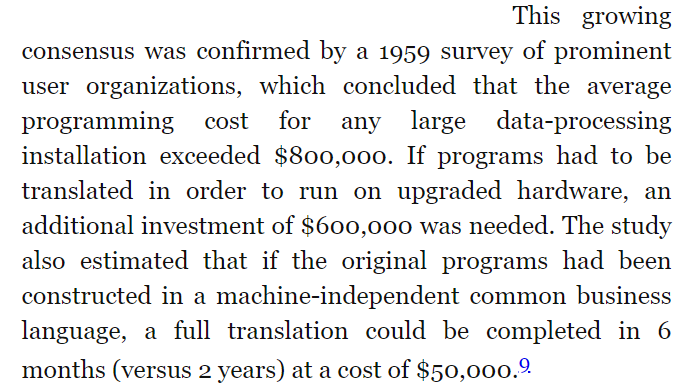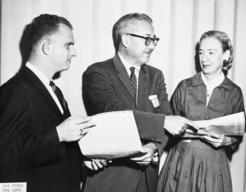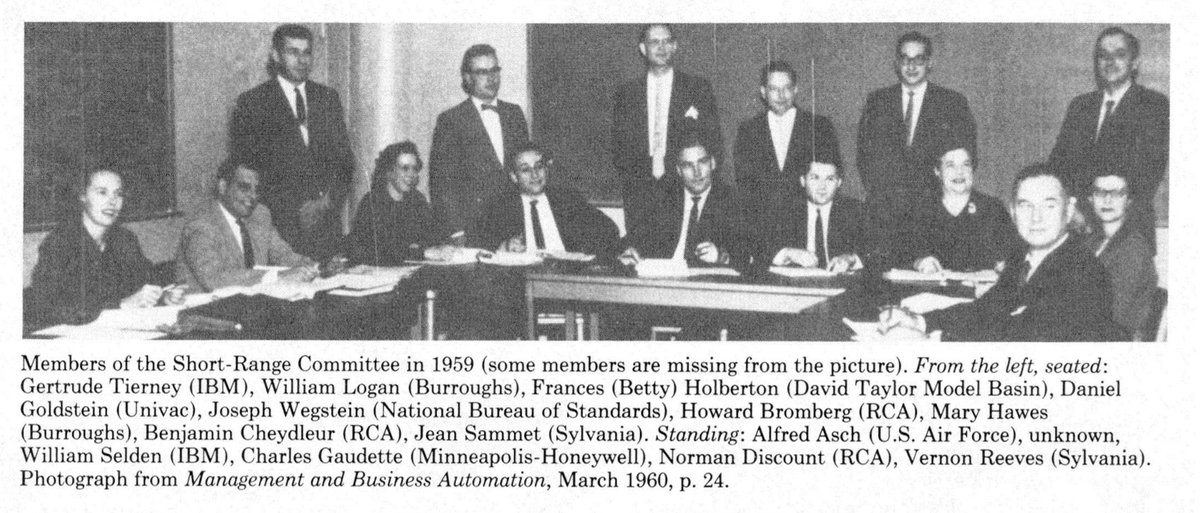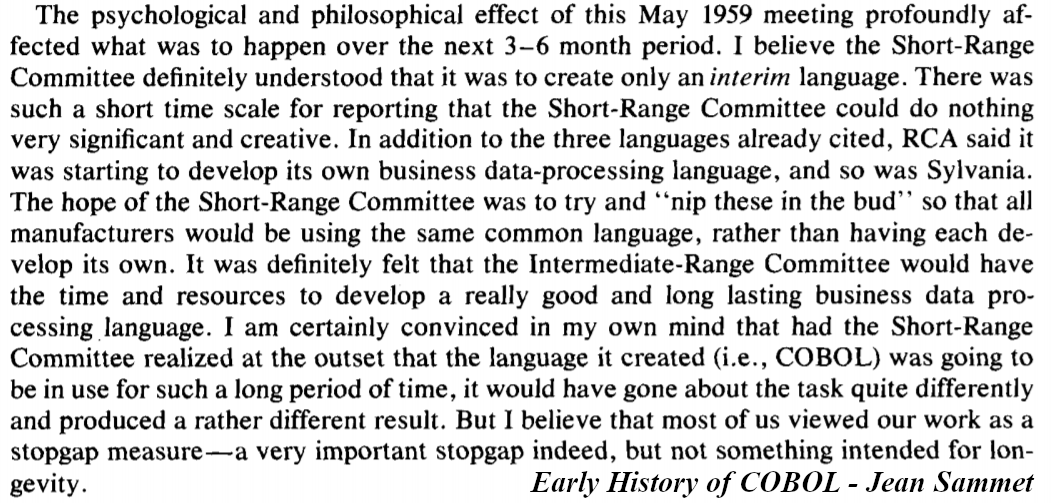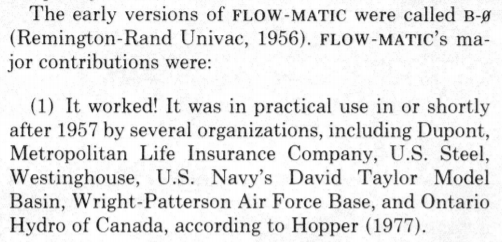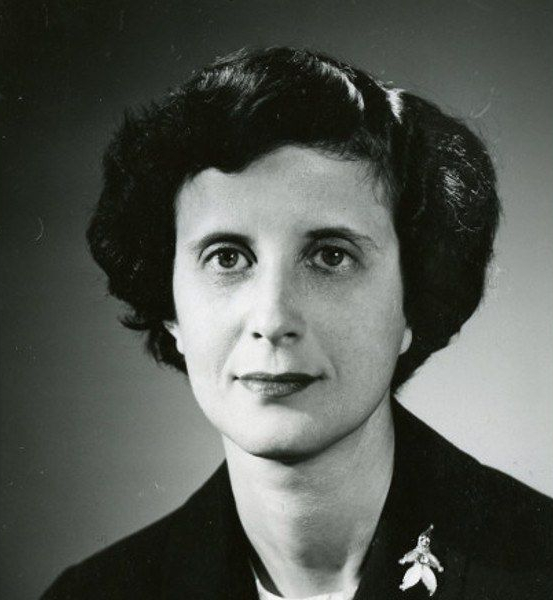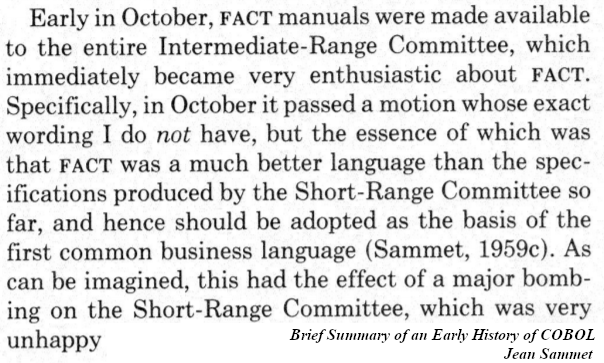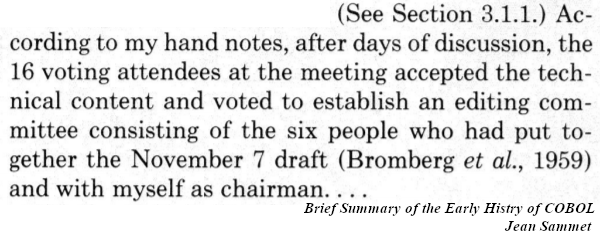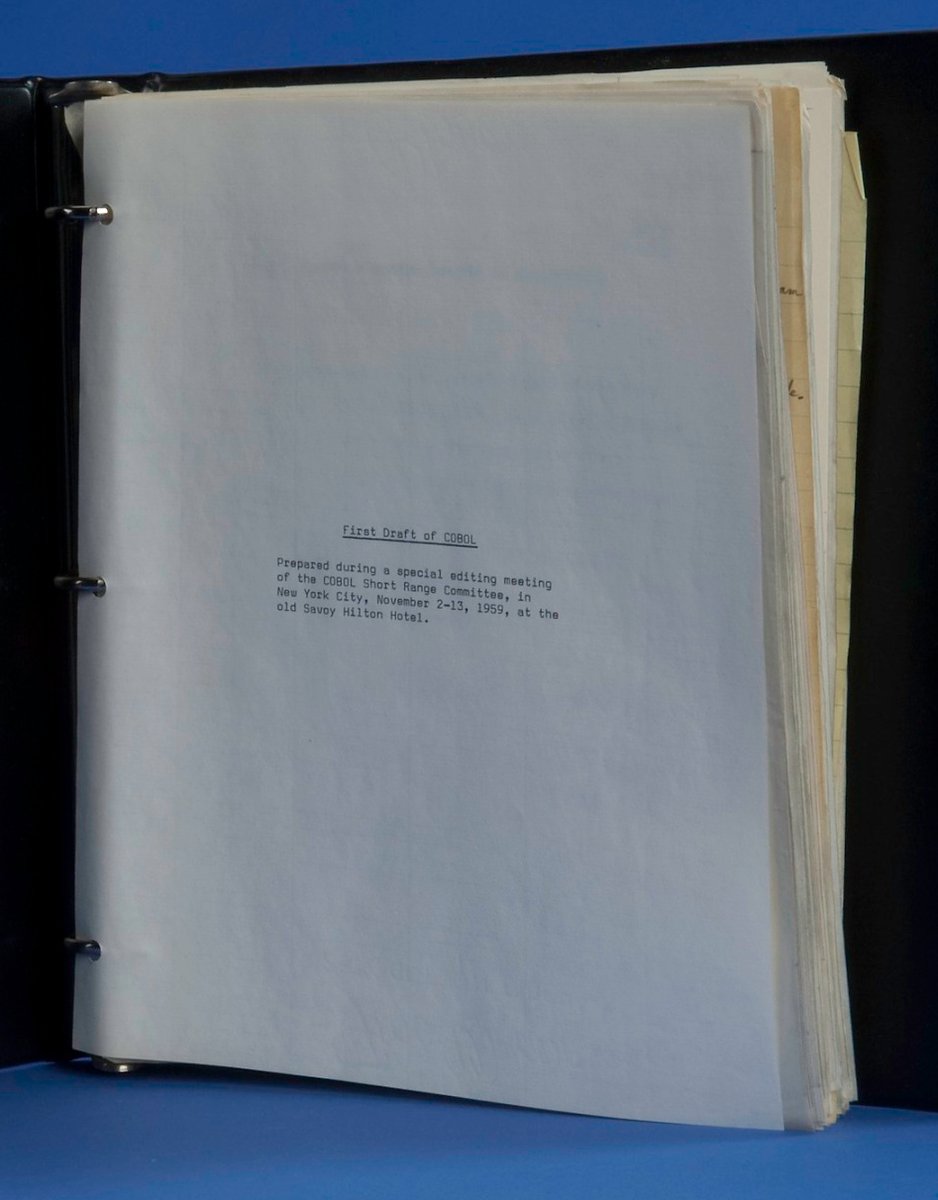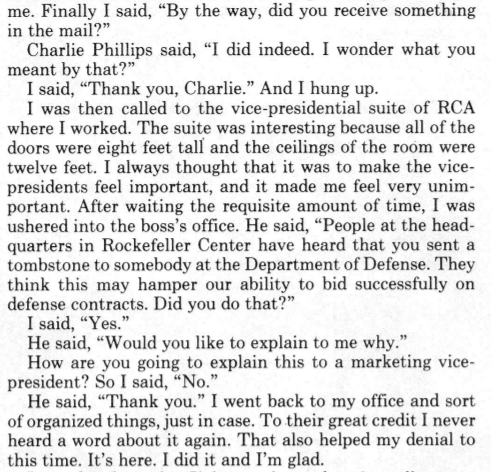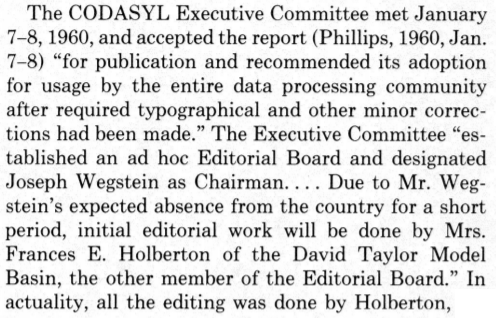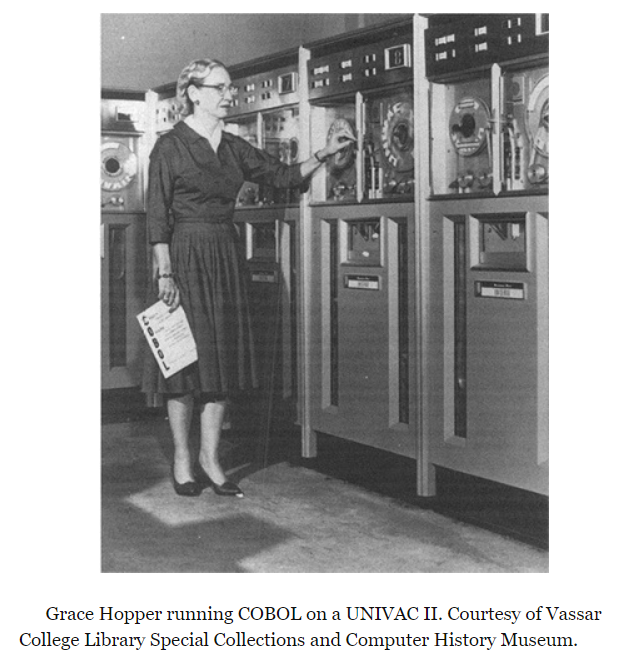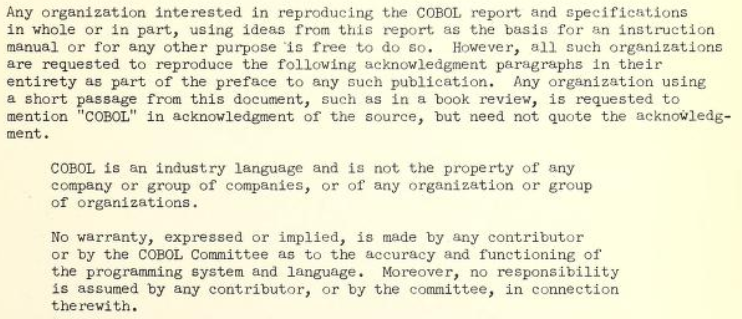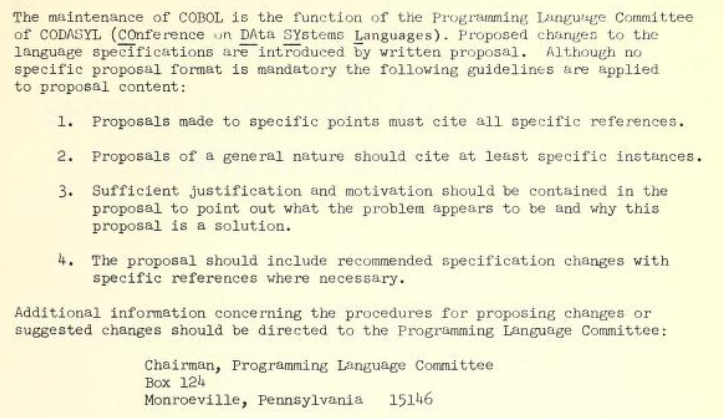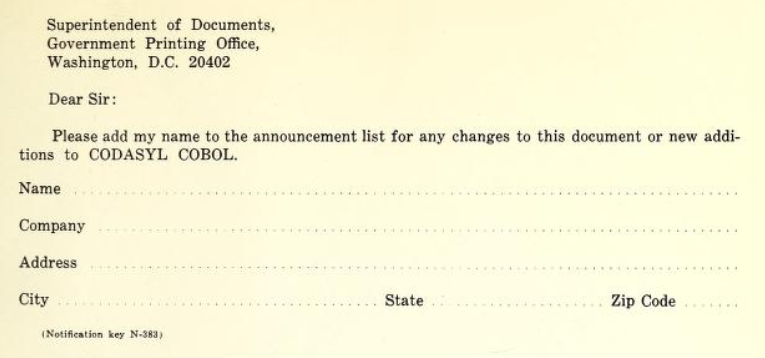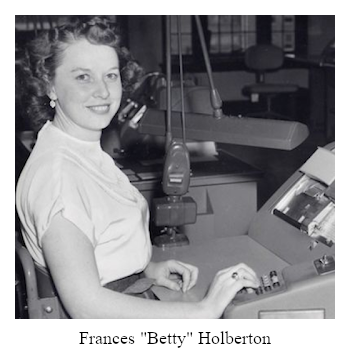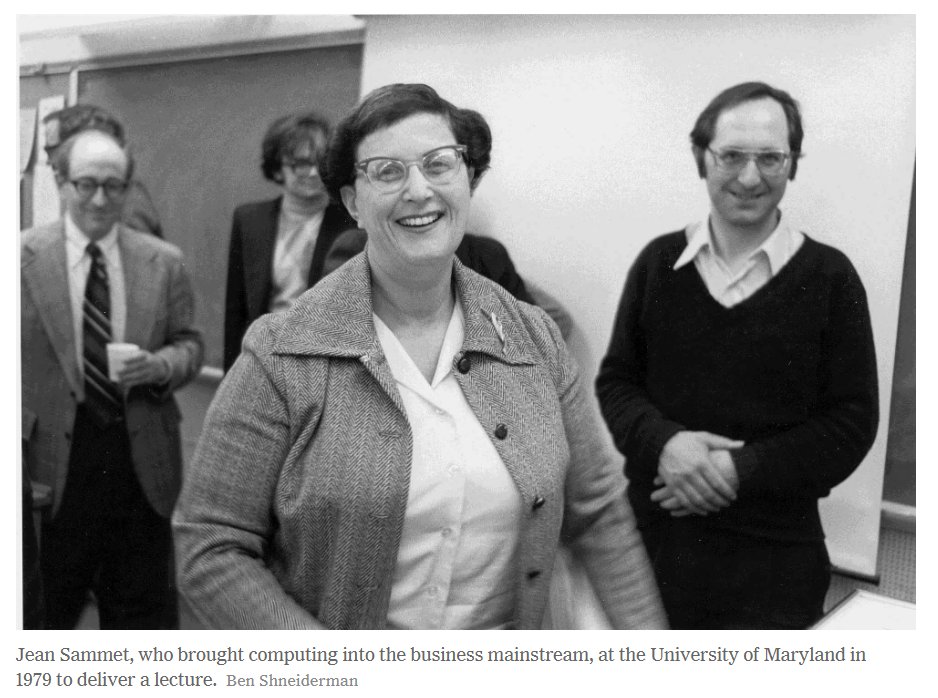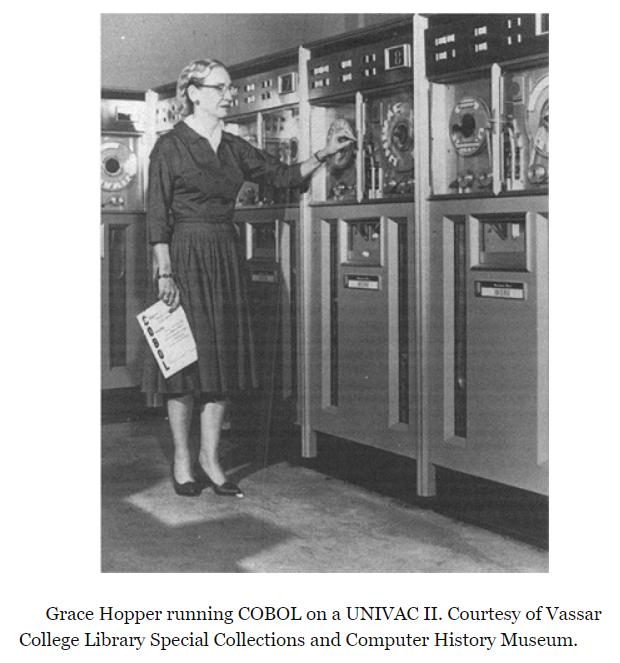The goals of COBOL sound normal today:
- Portable
- Freely available
- Designed by the community
In 1959 it was radical & unprecedented
It was also conceived of & led by women
This is the story of COBOL
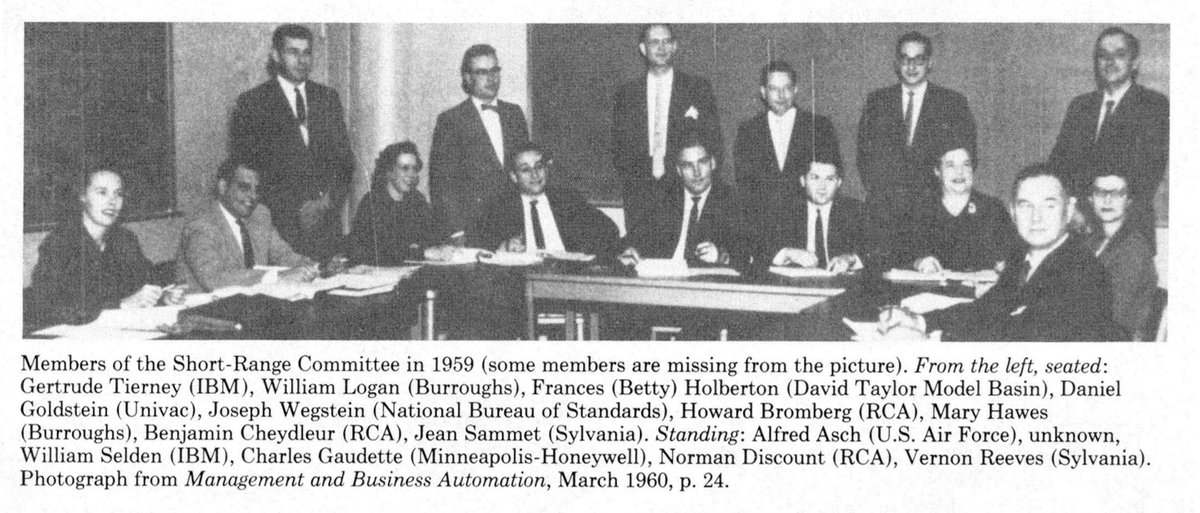
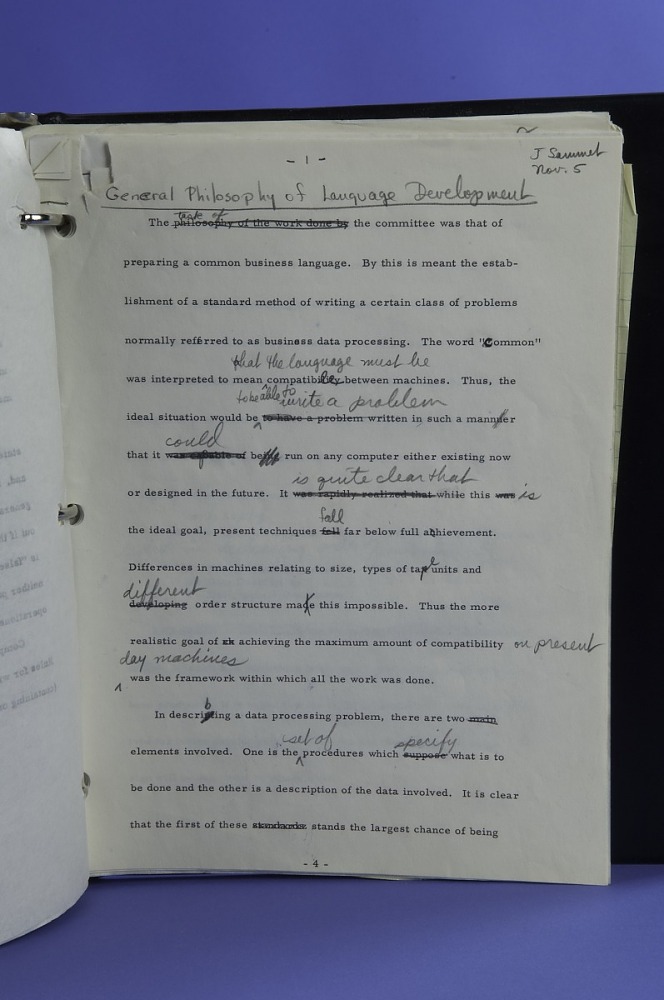
1959-05-08, @Penn: Grace Hopper organizes a meeting of users and manufacturers of computers to plan development of such a language
- Grace Hopper
"I don't think ever before or since have I seen in 1 room so much power to commit men and monies as I saw that day"
- Grace Hopper
Hopper wrote a "heated memorandum". She wanted a problem- & user-oriented language designed for business data-processing not mathematicians
The FLOW-MATIC syntax stayed
They gave the SRC until December to clean it up
They also gave it a name: Common Business Oriented Language (COBOL)
In the fall of 1959, the Intermediate Range Committee (one of the other two teams), received copies of the FACT language
They were so impressed they passed a resolution to base COBOL on it
Many more followed
1962: CODASYL starts a joint effort with @ansidotorg and @isostandards to create a COBOL International Standard

It was the first ISO programming language standard
It was revised in:
1985
2002
2014
2020
I had the good fortune to vote in favor of COBOL 2020 for @nvidia
Recollections on the Early Days of COBOL and CODASYL (IEEE)
ieeexplore.ieee.org/stamp/stamp.js…
archive.org/details/codasy…
dl.acm.org/doi/pdf/10.114…
americanhistory.si.edu/cobol/proposin…
americanhistory.si.edu/collections/se…
ieeexplore.ieee.org/stamp/stamp.js…
dl.acm.org/doi/pdf/10.114…
computer.org/csdl/magazine/…
nytimes.com/2017/06/04/tec…
amazon.com/dp/B00TQ4MY9Q
ed-thelen.org/comp-hist/TCMR…

